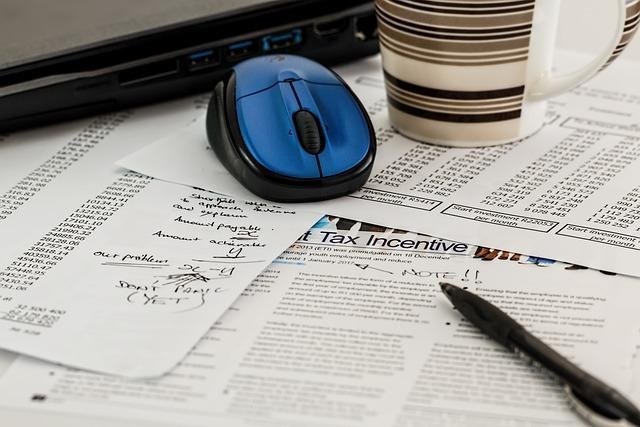Being notified of an IRS audit can initially be a scary experience for many business owners. Yet, with thorough preparation and understanding, the process can become significantly more manageable.
Here’s a detailed guide to help your business prepare for a smooth IRS audit experience.
- Understand the Why
When that audit letter arrives, the first reaction might be confusion or even a bit of panic. Why was your business chosen? Often, the selection isn’t a result of suspected foul play.
The IRS might select your business based on random sampling and statistical formulas, or they might just want to verify some aspects of your returns due to discrepancies they’ve noticed.
By getting a grip on the specific focus of the IRS for your audit, you can narrow down your preparations, ensuring your efforts are precise and effective.
Communicate early with the IRS, ask questions, and ensure you have clarity on their expectations. This initial understanding will set the tone for your entire preparation process.
- Keep Calm and Stay Organized
The thought of diving into stacks of receipts, invoices, and statements can indeed be overwhelming. However, organization is your best ally. Begin by designating a workspace for audit preparations.
Collect all relevant documents – this includes but isn’t limited to bank statements, purchase receipts, payroll records, and any business expense documentation. Create a systematic filing system, either physical or digital.
Break it down by year, type of expense, or any category that makes sense for your business. Remember, a well-organized set of documents not only eases the audit process but also reflects positively on your business practices.
- Familiarize Yourself with Audit Procedures
Understanding what to expect during the audit can alleviate a lot of anxiety. One of the common questions business owners often have is, how long do IRS audits take? The duration can vary based on the complexity of your returns and the scope of the audit, but having an estimate helps in setting expectations.
Familiarize yourself with standard IRS audit procedures, including the types of questions auditors typically ask, the usual sequence of an audit, and the kind of documentation they prioritize. By being aware of these elements, you can anticipate the flow of the audit and be better prepared to address the auditor’s concerns efficiently.
- Seek Expert Advice
Navigating the audit process alone can be challenging, especially if this is your first time. Enlisting the help of a tax professional or CPA is beneficial. They bring a wealth of experience, can offer insights into the IRS’s likely areas of interest, and can guide you in presenting your financial data coherently.
Furthermore, they can be present during the audit, offering advice and ensuring your rights are upheld. Their expertise can prove invaluable, transforming a potentially stressful audit into a straightforward, understandable process.

- Anticipate Possible Pain Points
Every business has complex areas in its financials, and yours is no exception. Before the audit, take a moment to reflect on which aspects of your financial statements or tax returns might raise eyebrows.
These could be significant deductions, unusual revenue spikes, or perhaps some gray areas in the tax code you’ve capitalized on.
By acknowledging and preparing for these pain points in advance, you can be ready with explanations, justifications, and supporting documents when the auditor inquires.
This proactive approach will also showcase your dedication to transparency and thoroughness, potentially smoothing out the audit process.
- Rehearse Your Responses
It might sound unorthodox, but rehearsing your responses can be immensely beneficial. Like preparing for a business presentation or interview, you want to present your information clearly and confidently.
Review the major items in your returns, especially those you believe might get queried, and practice explaining them. This doesn’t mean fabricating responses but ensuring you can communicate complex financial matters lucidly.
This rehearsal will bolster your confidence and ensure that the audit proceeds without unnecessary hitches or misunderstandings.
- Create a Quiet and Professional Environment
On the day of the audit, ensure you’ve set up a quiet and professional environment for the auditor to work in. This not only makes their job easier but also sends a message about your business’s professionalism.
Ensure the space is tidy, organized, and free from distractions. Also, be ready to provide any additional information or documents the auditor might request.
- Stay Updated with Tax Law Changes
Tax laws are dynamic, and they can change from year to year. Make it a habit to stay updated with these changes, especially those relevant to your business sector.
By being informed, you can confidently discuss any new additions or modifications in tax laws with the auditor, ensuring there’s no ambiguity or misinterpretation.
- After the Audit: Reflect and Adapt
Once the audit concludes, take time to reflect on the process. Were there areas where the auditor spent more time? Were there queries or concerns that surprised you?
Use this reflection as a learning experience. By identifying areas that garnered more attention during the audit, you can adapt your record-keeping and financial practices accordingly, ensuring smoother audits in the future.
Conclusion
In the dynamic world of business, facing an IRS audit might seem like an intimidating hurdle. However, with the right preparation and mindset, it becomes a manageable process.
By understanding the reasons behind an audit, maintaining organized records, seeking expert guidance, and proactively addressing potential areas of concern, businesses can navigate through the procedure with confidence.
It’s essential to remember that an audit isn’t necessarily a reflection of wrongdoing; in many instances, it’s just a routine check or a means to clarify certain aspects of your returns. Think of the audit as a valuable learning experience.
The feedback and insights gathered can refine your financial practices, ensuring not just a successful audit outcome but also smoother business operations in the future.
Embrace the experience, adjust based on feedback, and continue to uphold the values of transparency and excellence in all business undertakings.

